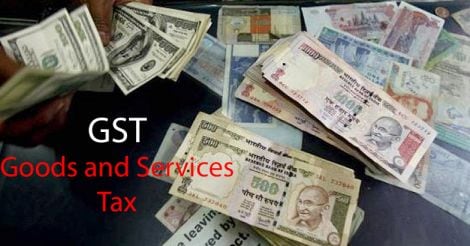The goods and services tax bill tabled in Rajya Sabha was unanimously passed on Wednesday to pave the way for the introduction of a pan-India goods and services tax regime. The upper house passed what is called the Constitution amendment bill, 2014, with 203 ayes in the final vote. The AIADMK had staged a walk-out earlier registering its protest against the bill. While analysts have mixed opinion about the impact of GST on the equity market and rupee movement, here are five things you must know about the long-pending bill.
» In the GST system, taxes for both centre and state will be collected at the point of sale. Both will be charged on the manufacturing cost.
» Individuals will be benefited by the new tax system as prices are likely to come down
» India will gain $15 billion a year by implementing GST by promoting more exports and employment opportunities.
» Once implemented the GST will replace all versions of indirect tax including VAT, excise duty, service tax and other state level taxes.
» Alcohol, tobacco and petroleum products don't come under GST
























